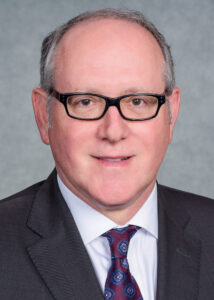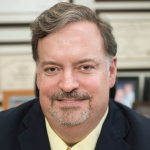Kenneth G. Saag, MD, MSc, is bringing a penchant for problem solving, a forward-thinking approach and a high level of optimism to his new role as 85th president of the ACR.

Dr. Saag
Dr. Saag received his Doctor of Medicine from Northwestern University, Evanston, Ill., and his Master of Science in epidemiology from the University of Iowa, Iowa City.
He is a professor of medicine and holds the Jane Knight Lowe endowed chair in the Division and the Department of Medicine at the University of Alabama at Birmingham (UAB). He became division director of clinical immunology and rheumatology in July 2020. He is also the director of the UAB Comprehensive Arthritis, Musculoskeletal, Bone, and Autoimmunity Center. He has been a practicing physician with UAB Medicine and a researcher in the UAB School of Medicine since 1998. Dr. Saag’s research focuses on the comparative effectiveness and safety of therapeutics, as well as methods to improve the quality of care in gout and osteoporosis.
In addition to his considerable work with the ACR over the years, he also served as president of the National Osteoporosis Foundation Board of Trustees and remains the only rheumatologist to have held that position.
As Dr. Saag prepared to begin his term as ACR president, he shared his thoughts about capitalizing on the organization’s many strengths, facing challenges head-on and positioning the College for a strong future.
The Rheumatologist (TR): You have followed a rather unusual path to your current positions in rheumatology, including a start as an engineer. How would you describe your early journey, and how has it shaped your career?
Dr. Saag: I grew up in Evanston, a community that was diverse and multicultural, and I worked blue-collar jobs in high school, both experiences that gave me important perspectives on the world that might be different from those of other people. I ended up earning a Bachelor of Science in engineering from the University of Michigan, which is also very different from a lot of people in medicine. That experience gave me a quantitative, analytical approach to problem solving, one that has served me well in the kind of research that I do now and also in the way I think about problems of all kinds.
Another thing that has been helpful in my background came during my residency and year as chief resident. I trained at a program in a university-affiliated community hospital and really got to see a premier demonstration of private practice with some academic overtones. One of the things this helped me realize is that, although most of my career has been focused on academic medicine, there are really wonderful opportunities in private practice.

